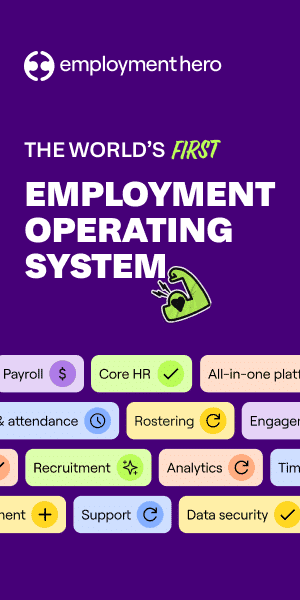As landlords in Queensland, one of our most important responsibilities is managing rental bonds properly. The rental bond is more than a simple deposit; it is a financial safeguard that ensures tenants meet their obligations while protecting us from potential loss. At the same time, it is a safeguard for tenants, as the system is designed to be fair, transparent, and legally regulated. In this article, we will explain everything you need to know about rental bonds in Queensland, including what they are, the rules we must follow, how to use the official Rental Bonds Online system, and practical tips to protect your position as a landlord. By the end, you will have a clear understanding of how to manage bonds correctly and how to resolve disputes if they arise.
Click To View Our Rental PackagesWhat is a Rental Bond?
A rental bond is a security deposit that tenants pay at the start of their tenancy. For landlords, it acts as insurance in case the tenant fails to meet their obligations under the lease. This could include unpaid rent, property damage, or cleaning costs at the end of the tenancy. The bond is not extra income for you. It is held in trust and can only be accessed under specific conditions. If the tenant has done the right thing, they will receive the bond back in full once they vacate.
In Queensland, all rental bonds are managed by the Residential Tenancies Authority (RTA). The RTA is a government body that ensures bonds are handled fairly and according to the law. This means that once you receive the bond from the tenant, you must lodge it with the RTA. The money will remain safely held by the RTA until the tenancy ends. This arrangement ensures transparency and protects both landlords and tenants.
Rules for Rental Bonds in QLD
The Residential Tenancies and Rooming Accommodation Act 2008 sets out the rules for rental bonds in Queensland. As landlords, it is essential that we follow these rules to remain compliant. Here are the key points you need to know:
1. For general tenancies, you can ask for a maximum of four weeks’ rent as the bond if the rent is $700 per week or less. If the rent is more than $700 per week, there is no maximum limit, but the amount must still be reasonable.
2. You must lodge the bond with the RTA within 10 days of receiving it. This can be done online or by completing the appropriate forms. Keeping the bond yourself is illegal and can result in penalties.
3. You must provide the tenant with a receipt for their bond payment and ensure they receive official confirmation from the RTA once it is lodged.
4. At the end of the tenancy, the bond cannot be released until both you and the tenant agree, or the RTA or Queensland Civil and Administrative Tribunal (QCAT) makes a decision. You cannot unilaterally withhold the bond.
By following these rules, you will not only protect your interests but also create a professional relationship with your tenants built on fairness and compliance.
Lodging Your Bond Online
The RTA provides a secure platform called Rental Bonds Online, which allows landlords to lodge and manage bonds electronically. This system is efficient, safe, and transparent, making it easier for both landlords and tenants. As landlords, we benefit from faster processing, reduced paperwork, and the ability to keep track of bond records in one place.
The process works as follows:
– You register as a user of Rental Bonds Online through the RTA website.
– When you receive a bond from a tenant, you log into your account and lodge the payment electronically.
– The tenant will receive confirmation, and the RTA will securely hold the funds until the tenancy ends.
Using this system ensures compliance and avoids the risks associated with manual or delayed lodgements. It also provides an official record that can be accessed at any time.
If you are ready to lodge a bond now, you can do so here: Lodge a Rental Bond Online.
Managing the Bond During Tenancy
Once lodged, the bond remains with the RTA for the duration of the tenancy. As a landlord, you cannot touch the funds during this time. The bond serves as neutral security, available to be claimed only when the tenancy ends or when both parties agree to an adjustment. Throughout the tenancy, your role is to maintain accurate records of rent payments, inspections, and communication with the tenant. These records will be invaluable if a bond dispute arises later.
It is also important to conduct regular inspections in line with the law. Inspections allow you to identify maintenance issues early and to ensure the tenant is taking care of the property. By raising concerns promptly, you reduce the risk of damage accumulating and strengthen your position if a bond claim becomes necessary.
Bond Claims at the End of Tenancy
When the tenancy ends, the bond must be finalised. If the tenant has met all their obligations, the bond should be returned in full. You can initiate the refund process through the RTA’s Rental Bonds Online system. If there are outstanding issues, you have the right to make a claim.
The process is as follows:
– You submit a claim through Rental Bonds Online, stating the amount you wish to retain and the reasons for the claim.
– The tenant is notified of your claim. They can either agree or dispute it.
– If the tenant disputes the claim, the matter can be referred to QCAT. Both parties will present evidence, and the Tribunal will decide how the bond should be distributed.
This system ensures that disputes are handled fairly and independently. You must provide evidence to support your claims, such as condition reports, invoices, or photographs.
Examples of When Bonds Are Claimed
It can be useful to consider real examples of how bonds are used:
– A tenant leaves without paying the final two weeks of rent. You can claim that amount from the bond.
– Carpets are heavily stained and require professional cleaning beyond normal wear and tear. You can claim the cleaning costs.
– Walls are damaged by holes or scratches caused by negligence. You can claim repair costs.
– The tenant leaves rubbish and debris in the yard, requiring removal. You can claim the cost of hiring cleaners or rubbish removal services.
In each of these situations, it is important that your claims are supported by evidence and that the costs are reasonable.
Tips for Protecting Your Position as a Landlord
To ensure you are well protected when managing bonds, we recommend the following practices:
1. Complete a detailed entry condition report with photographs when the tenant moves in. Provide a copy to the tenant and keep one for yourself.
2. Carry out regular property inspections and keep written records of the results.
3. Keep receipts for all repairs and maintenance, as this will support your case if a dispute arises.
4. Communicate clearly with your tenants about their responsibilities. Transparency helps prevent disputes later.
5. Use the Rental Bonds Online system exclusively, as it ensures compliance and reduces the chance of errors.
Frequently Asked Questions
How much bond can I ask for in QLD?
If rent is $700 per week or less, you can request a maximum of four weeks’ rent as the bond. For rent above $700 per week, there is no legal limit, but the amount should still be fair and reasonable.
Where is the bond money kept?
The bond is lodged with and held by the Residential Tenancies Authority, not by you. This ensures the money is secure and impartial.
Can I lodge a bond online?
Yes. Rental Bonds Online through the RTA is the official and preferred method of lodging and managing bonds in Queensland. It is secure, fast, and reliable.
How do I make a claim on the bond?
At the end of the tenancy, you can lodge a claim through the RTA system. If the tenant agrees, the money is released quickly. If not, QCAT may be required to decide the matter.
What happens if I do not lodge the bond?
Failing to lodge a bond with the RTA within 10 days is a breach of the law and can result in penalties. Tenants can also report non-compliance, which may damage your reputation as a landlord.
Final Thoughts
As landlords in Queensland, it is our responsibility to manage rental bonds in a way that protects both our investment and our tenants’ rights. By understanding the rules, using the Rental Bonds Online system, and keeping thorough records, you can ensure compliance and reduce the risk of disputes. The bond system is designed to be transparent, fair, and legally enforceable, giving both you and your tenants confidence throughout the tenancy. With careful management and good communication, you can make sure that the bond works effectively for you and that your rental arrangements run smoothly from start to finish.


